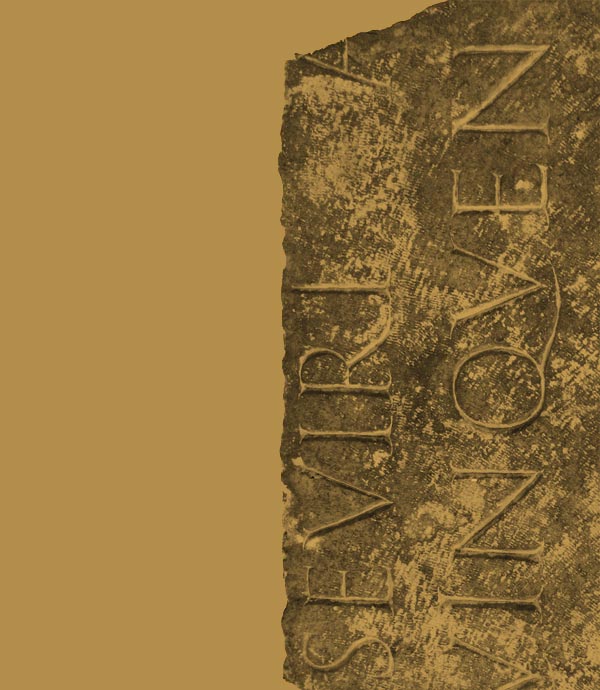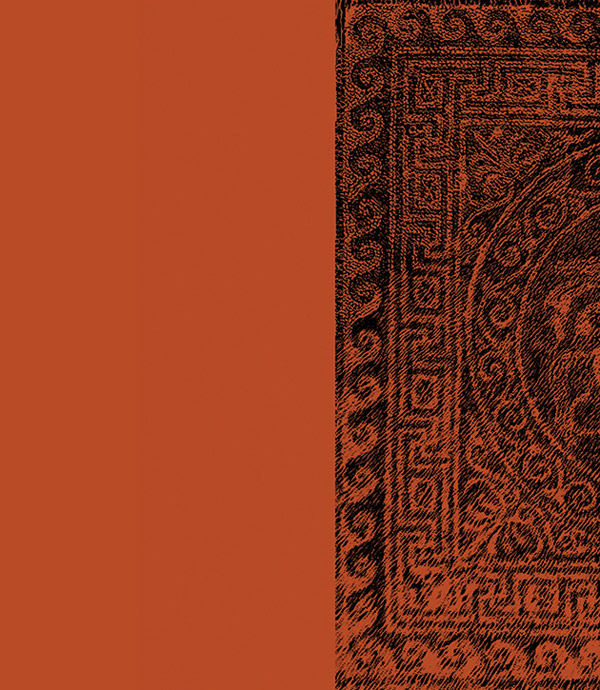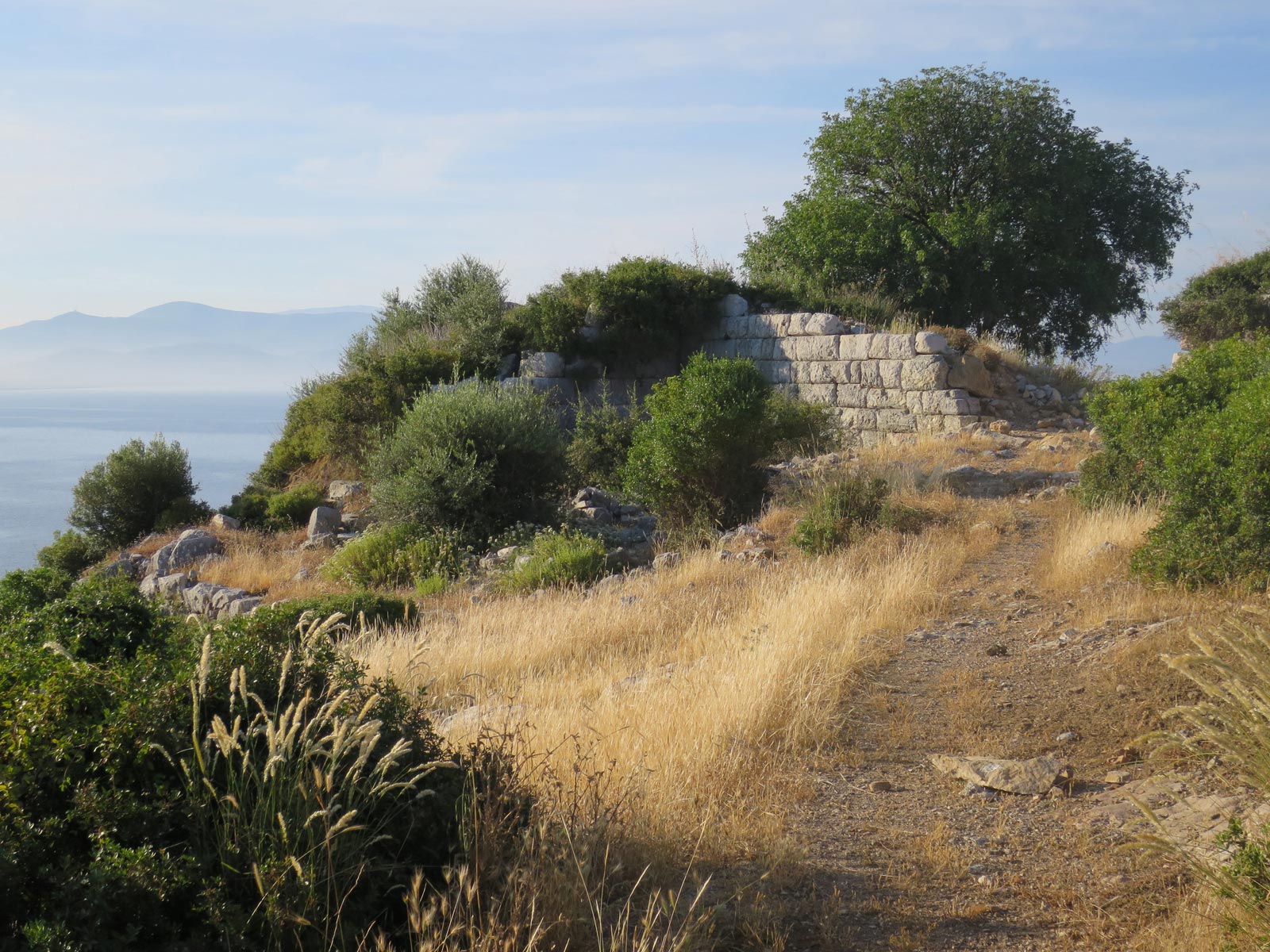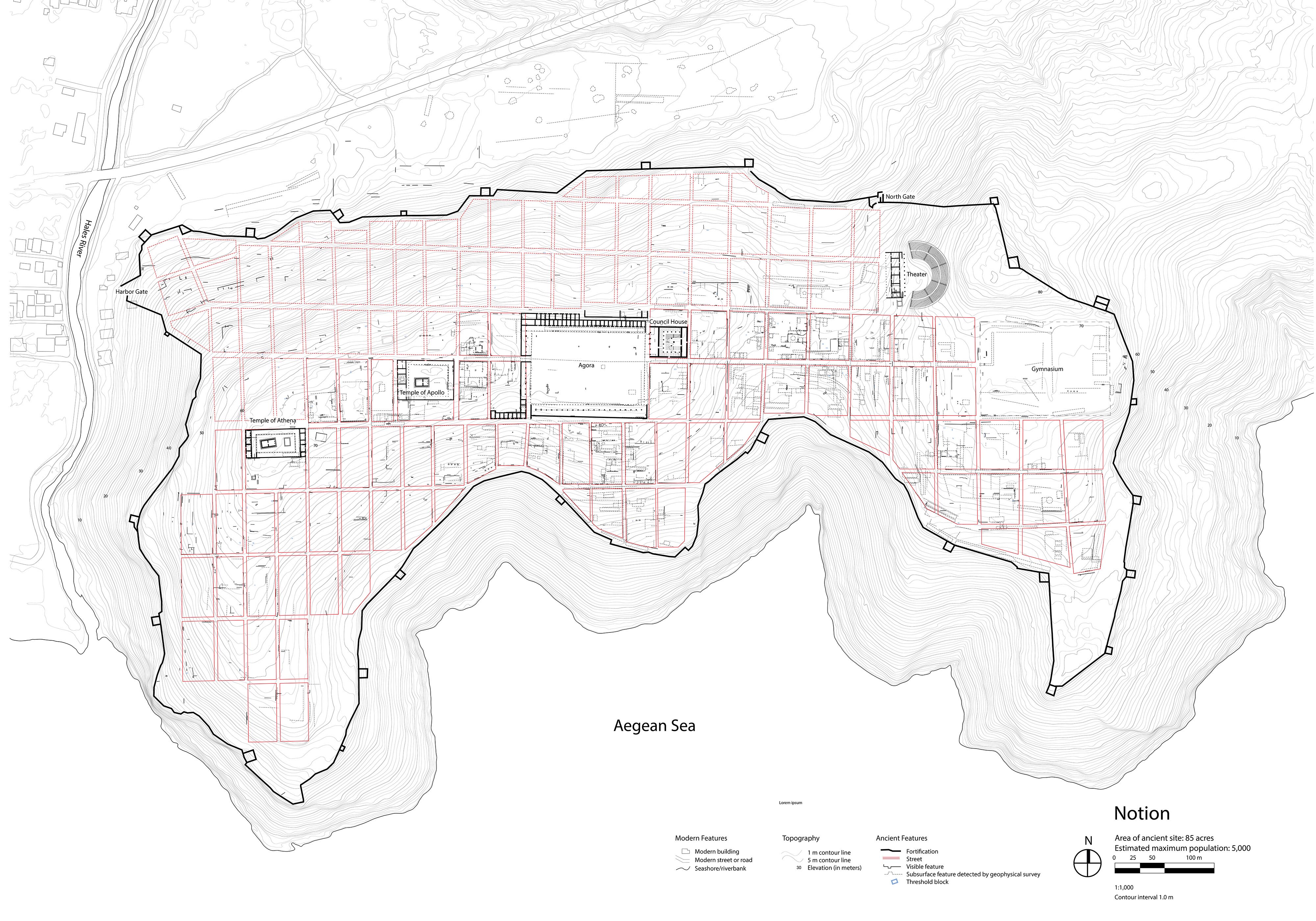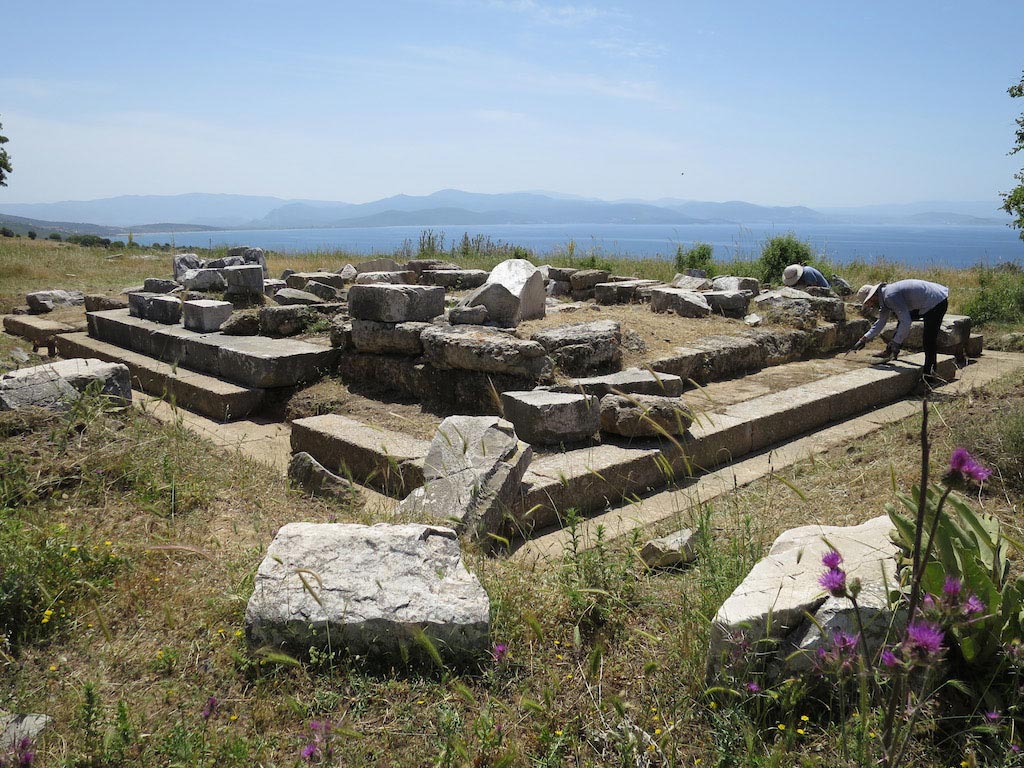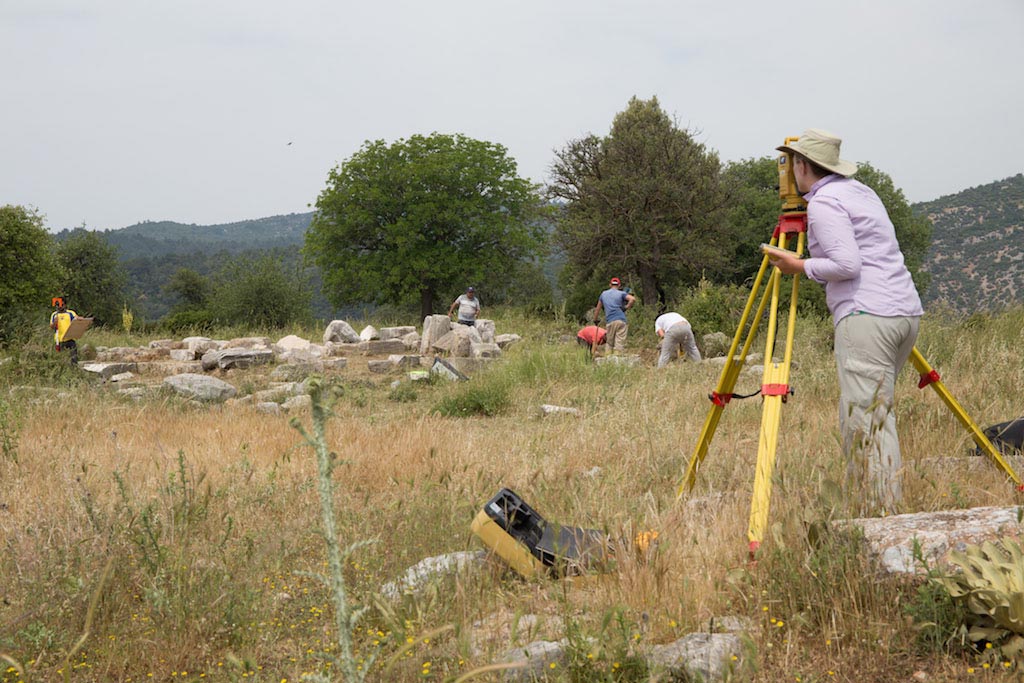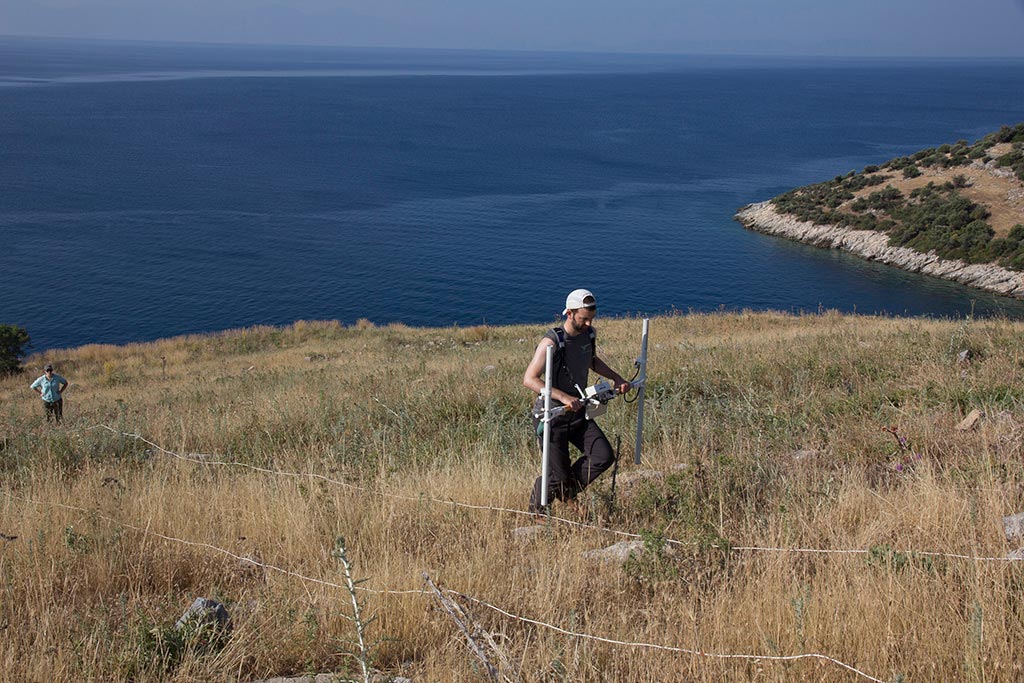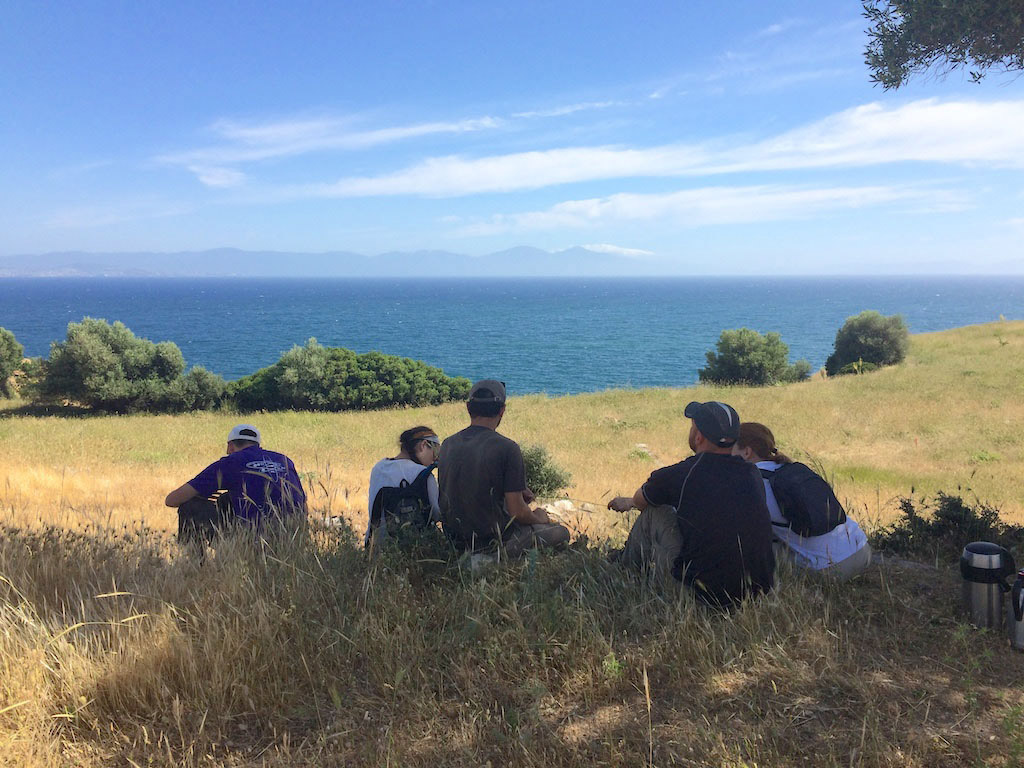Introduction

Notion (NO-tee-on) was a harbor city on the west coast of Turkey, dramatically situated on two seaside promontories. It was founded in the 3rd century BC, when the population of an older town relocated to a new, fortified settlement on this strategic site. Surprisingly, the new city was itself largely abandoned only a few hundred years later, in the 1st century AD. Why?
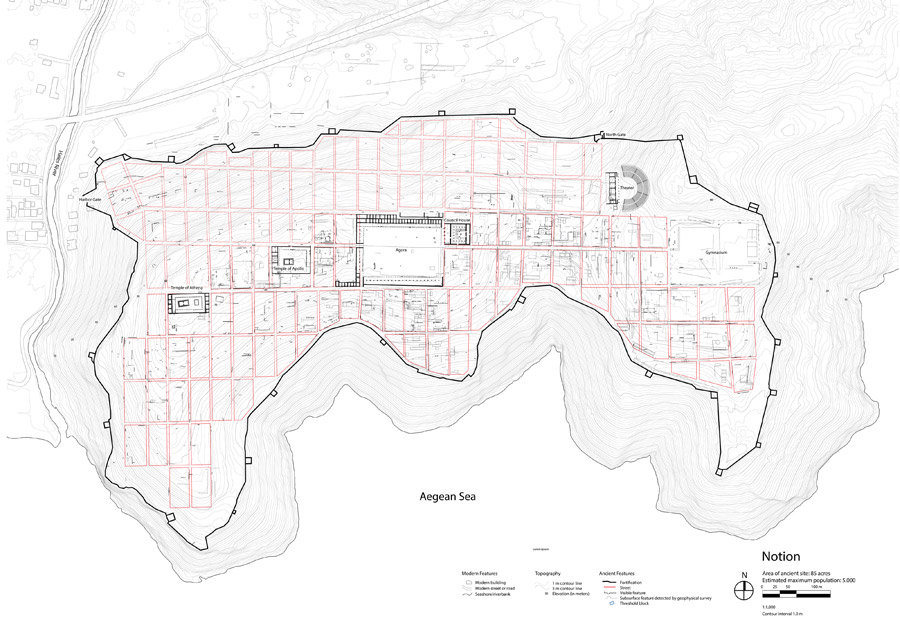
At that time, Notion belonged to the thriving Roman province of Asia. This was a period of widespread peace, and Notion’s residents may have been emboldened to leave their walled city in search of conveniences that Notion lacked, such as fresh water. In addition, economic opportunities beckoned from the great city of Ephesus, a Roman administrative center just 10 miles to the southeast. In moving from their small town to the “big city,” the citizens of Notion anticipated a wider trend. In the later 3rd and 4th centuries, many small and medium-sized communities were similarly absorbed by larger urban centers.
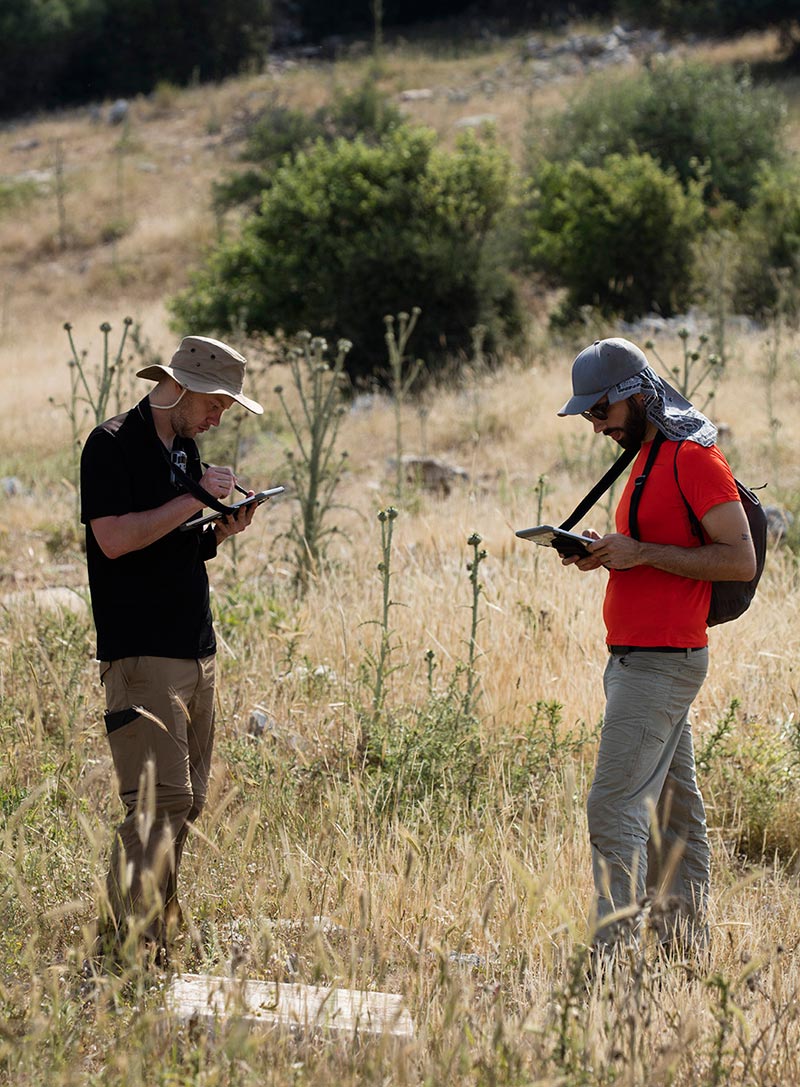
An archaeological survey of Notion was begun in 2014. In archaeology, survey means archaeology without digging, and it combines modern mapping technologies with traditional methods such as collecting artifacts found on the surface of the ground.

